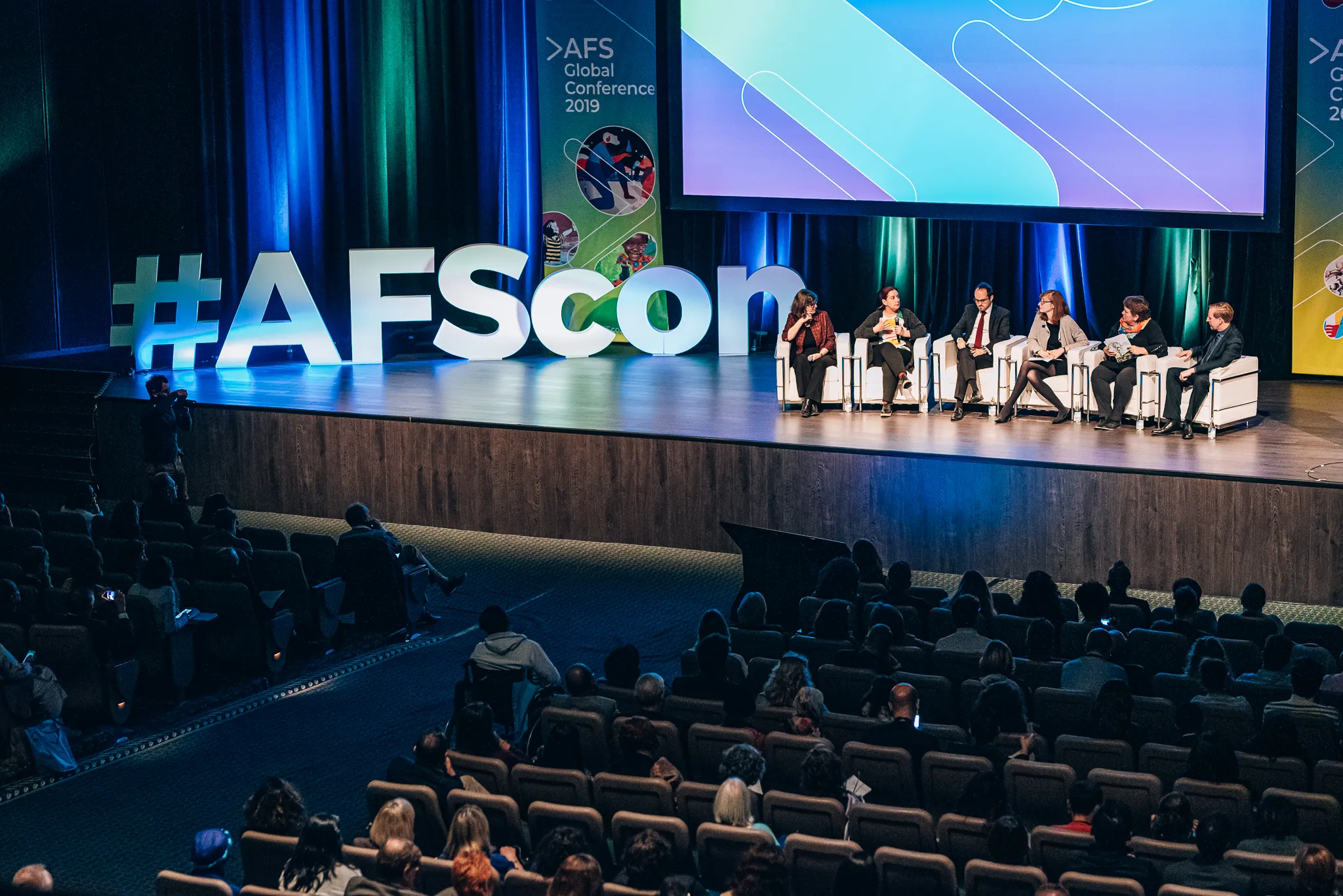2019 AFS Global Conference on Active Global Citizenship—and How to Educate for It (9-11 October 2019 in Montreal, Canada) featured a revealing panel discussion, “A Hard Look at the State of Global Competence Education Around the World” facilitated by Melissa Liles, Chief Global Engagement Officer at AFS. The discussions were held against the backdrop of the United Nations Sustainable Development Goal #4 which focuses on quality education and invites different stakeholders to ensure inclusive and equitable quality education and promote lifelong learning opportunities for all.
“UNESCO reports that about 60% of nations have some type of policy recommending global competence education be offered in schools, but far fewer countries have evolved these commitments into curricula, practices and programs,“ said Liles. “Study after study quotes educators, policymakers, businesses and NGOs troubled by the shortage of people with these essential global skills. So why is it taking so long for global competence to become a core skill developed in classrooms and youth programs around the world?”
Politics continues to a big factor, but it’s not the whole problem, according to the the five education experts on this distinguished panel.

Politics: Promoting the value of global competence
“Education is the most intensely political thing that humans do together,” explained Dominic Cardy, Minister of Education and Early Childhood Development for New Brunswick (Canada). “Education is how we decide the value package that we are going to transmit to the next generation. There’s nothing more political than that. The more we try to soft sell that, the more we risk losing out to the forces of extremism and populism.” Cardy added that global competence education is “an ideological struggle,” and we must go beyond talking about it if we don’t want to lose ground to nationalists and exclusionists who oppose this concept.
Curriculum in Europe is determined on a national level, so “financing global [education] is very scarce,” added Tamara Gojkovic, Secretary-General of Youth for Exchange and Understanding and Vice-President of Life Long Learning Platform. And for European policymakers, the focus of intercultural or active citizenship education is very Eurocentric, she explained. These mindsets make it more difficult to put global competence and civic education in schools’ curricula.
Teacher Training: Educators must become global citizens
“We need to rethink teacher training,” said Darla Deardorff, Executive Director at the Association of International Education Administrators (AIEA). “It’s time to take teacher education beyond “knowledge transmission” to help teachers develop the knowledge, skills and attitudes they need [to become globally competent] and inject global competence into their classrooms.” Deardoff warned that students in this global generation already “may be further along in that journey than their teachers.”
Fielding questions about how universities address the growing demand for global competence in teacher education programs, Deardoff, a Research Scholar at Duke University, recommended that institutions start “mapping” and leveraging global and intercultural resources and expertise already inherent at universities.
Assessment: We don’t value what we don’t measure
Questions around the best ways to assess global competence skills continues to fuel debates in many countries. Every three years, the widely used and respected international PISA high school assessment tool provides comparative data on 15-year-olds’ performance in reading, mathematics and science. Including global competence in 2018 was viewed by many as a major step forward in advancing this high demand skill. But the effort hasn’t been without controversy.
“Global competence is a new concept, so it’s difficult to measure,” said Tarek Mostafa, Policy Analyst, Organisation for Economic Co-operation and Development (OECD). “ Still, most countries agree that global competence is important for 21st century students. The challenge is how it can be measured.” Mostafa reported that two-thirds of the countries that participate in the PISA student questionnaire (56 countries out of 80), chose to include global competence in their assessment. “Those countries that did not participate had technical questions about the assessment and how it would work in their countries. Countries that participated may already be teaching global competence and are comfortable with the assessment. So I think it’s more a matter of caution than opposition.”
Curriculum: Challenge what is consider core
Nancy Burrows of the Association québécoise des organismes de coopération international (AQOCI) advised global competence and citizenship education advocates to involve our most important stakeholders—students. Last year the AQOCI [Quebec Association of International Cooperation Organizations] empowered students to question the role of Quebec’s school system in international solidarity and global citizenship education. High school students (15 and older) graded the integration of international solidarity issues and global citizenship education at their schools and issued a report card for the Quebec provincial government. Student representatives then met with the education minister with hopes of moving their concerns forward and impacting teacher training.
Coalitions: Engaging stakeholders across sectors
Despite the challenges to advance global competence and global citizenship education, the panellists remained hopeful that educators, policymakers and citizens can join forces to make this learning available to more young people. At the end of the day, this is precisely what the Sustainable Development Goals envision – working together and leveraging different competences to achieve the goals. Or, as the SDG #17 defines it: Strengthen the means of implementation and revitalize the global partnership for sustainable development. Gojkovic summed it up best: “We have the resources, we have the knowledge. We need to work together!”